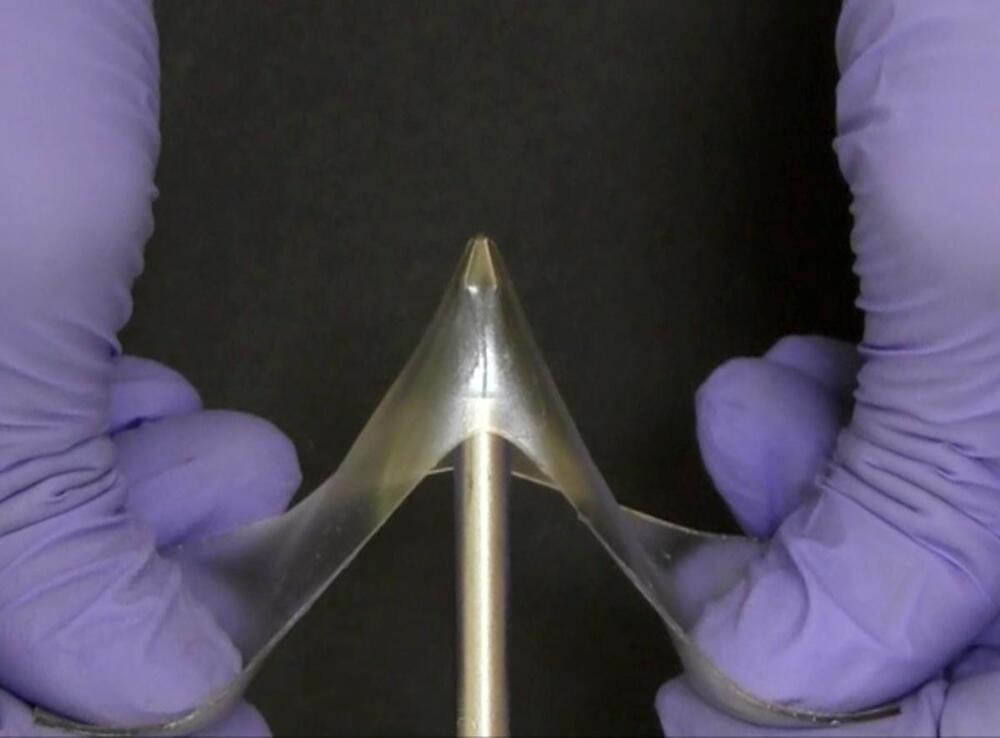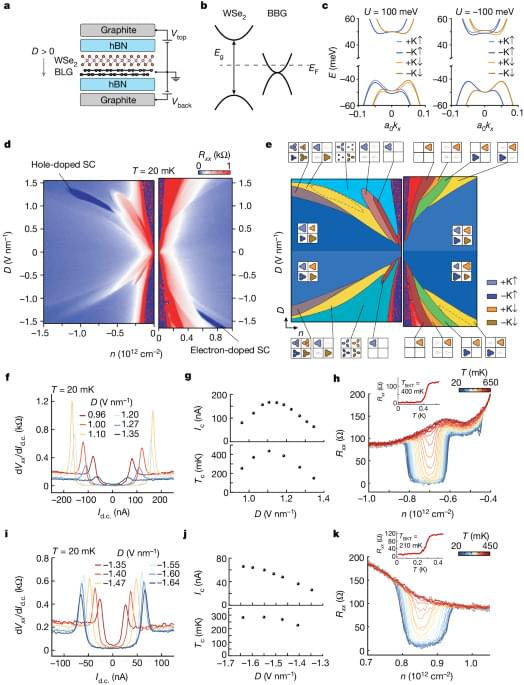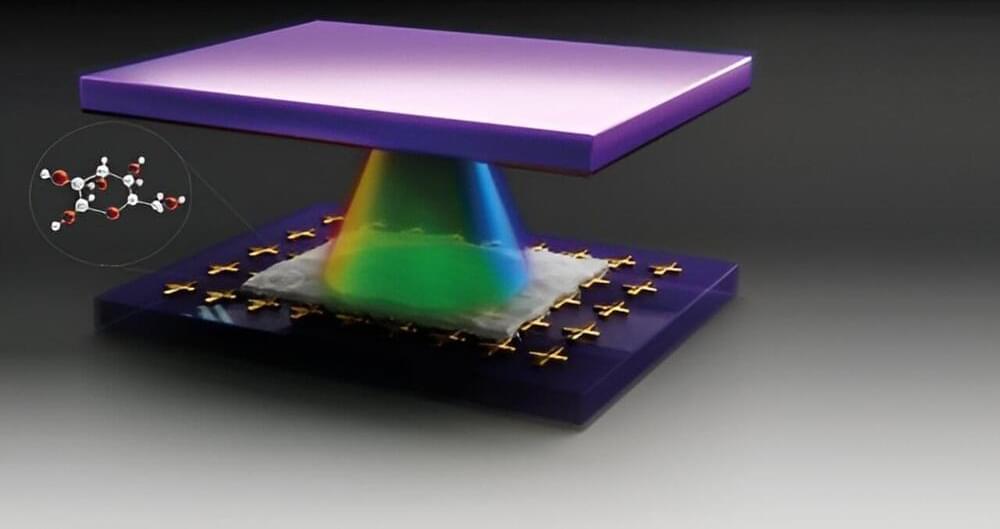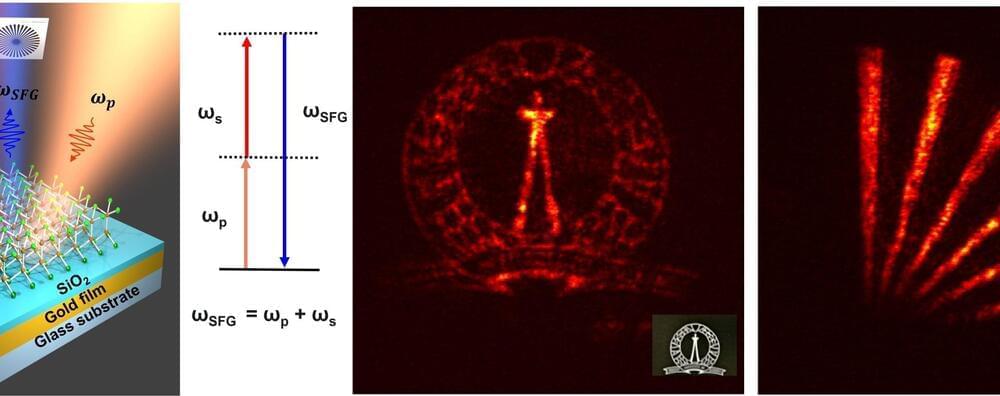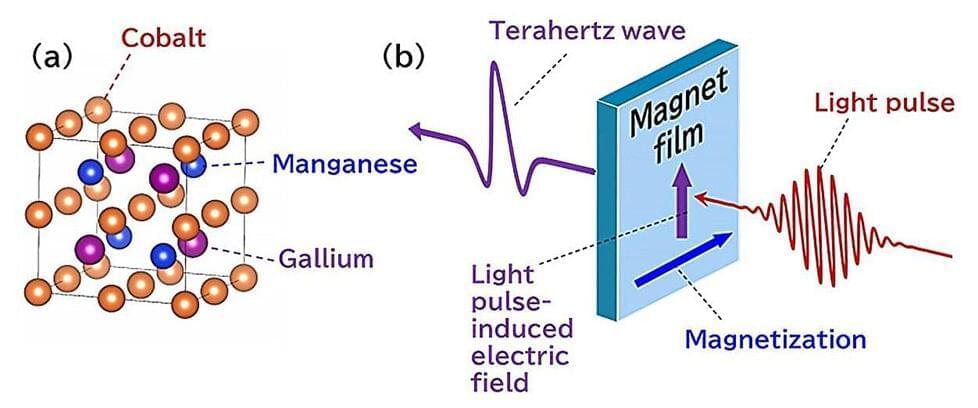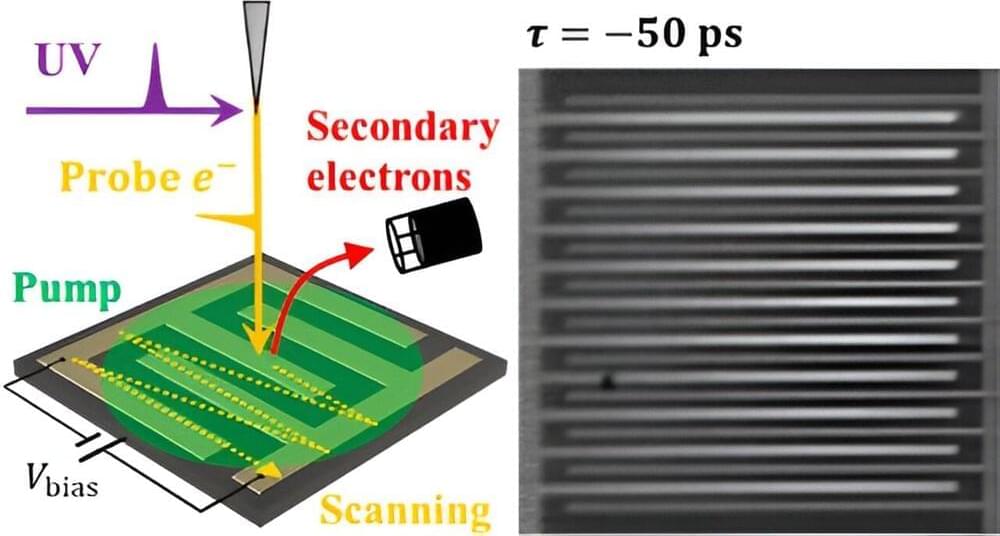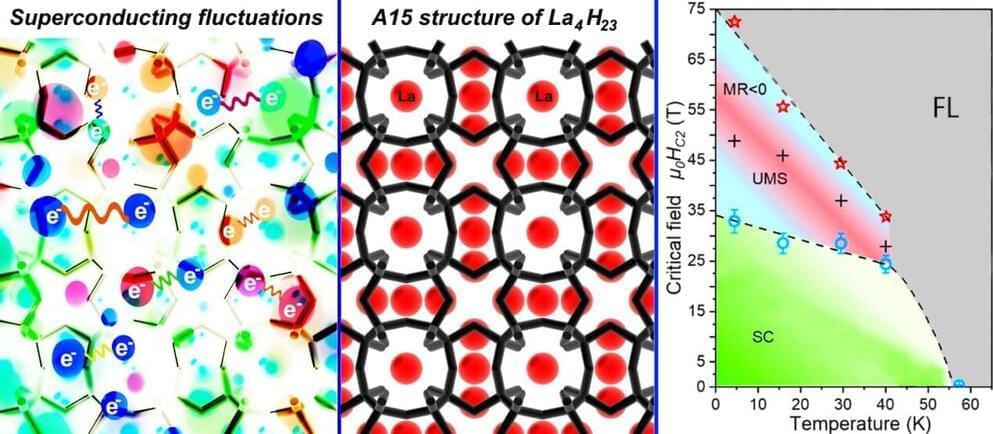Jun 21, 2024
Hard Yet Stretchable: Scientists Create “Unbreakable” New Material
Posted by Paul Battista in categories: biotech/medical, materials
Researchers have created a new class of materials called “glassy gels” that are as hard as glassy polymers, but – if you apply enough force – can stretch up to five times their original length, rather than breaking. A key thing that distinguishes glassy gels is that they are more than 50% liquid, which makes them more efficient conductors of electricity than common plastics that have comparable physical characteristics. Credit: Meixiang Wang, NC State University.
Researchers have developed a new class of materials known as glassy gels, which combine the hardness of glassy polymers with the stretchability of gels.
Continue reading “Hard Yet Stretchable: Scientists Create ‘Unbreakable’ New Material” »
